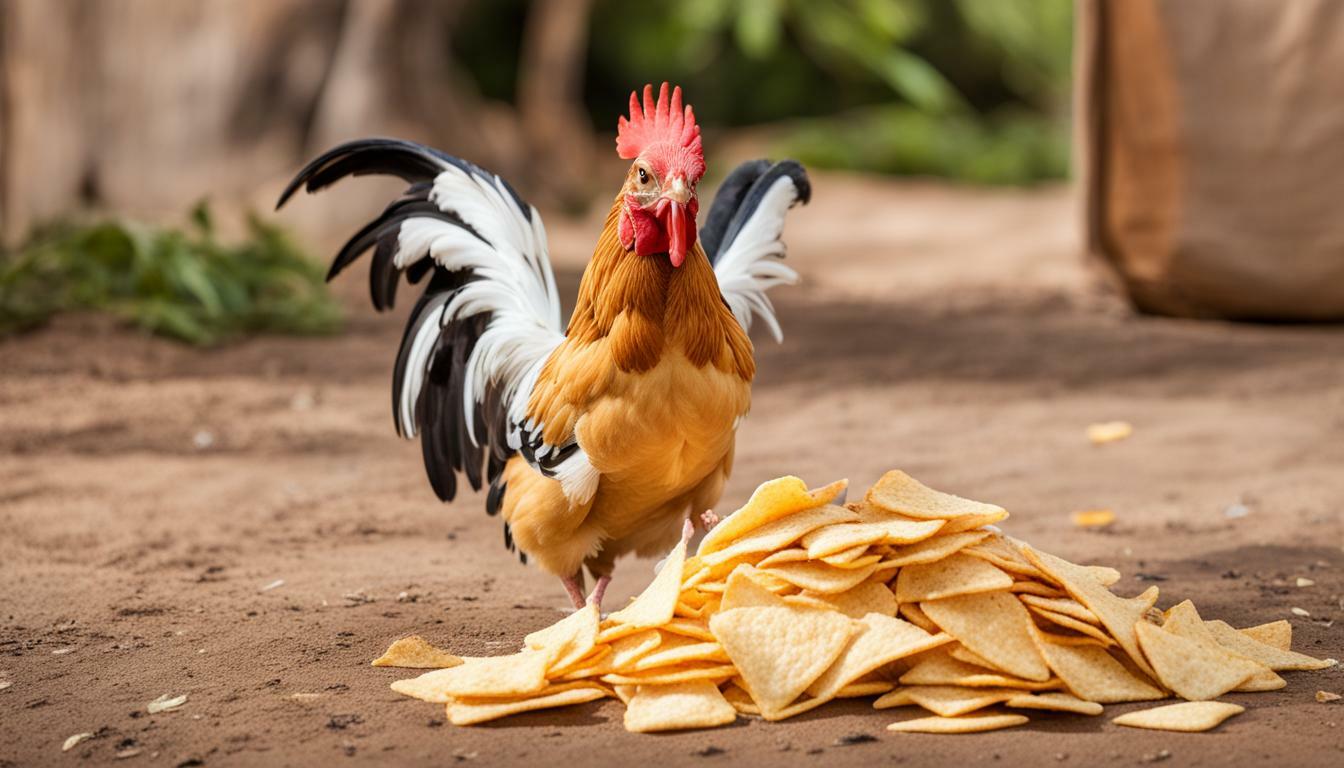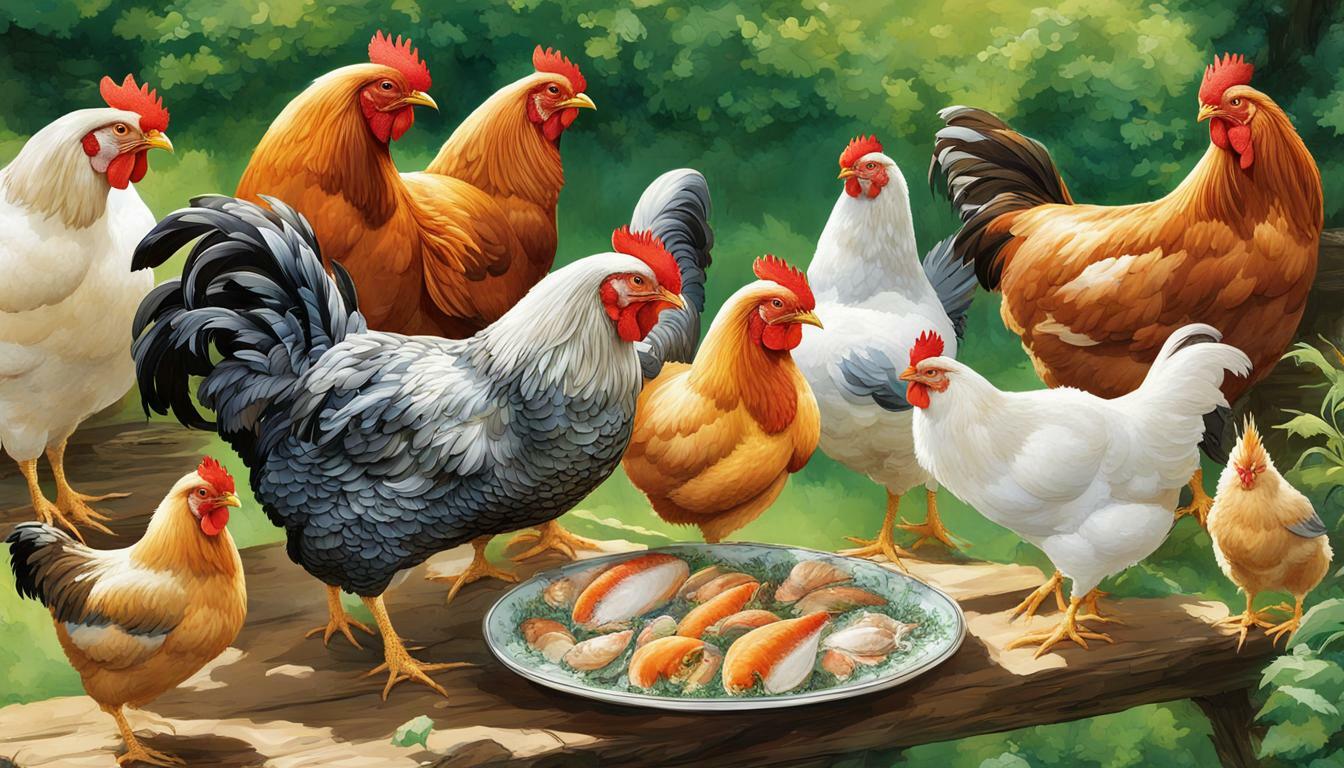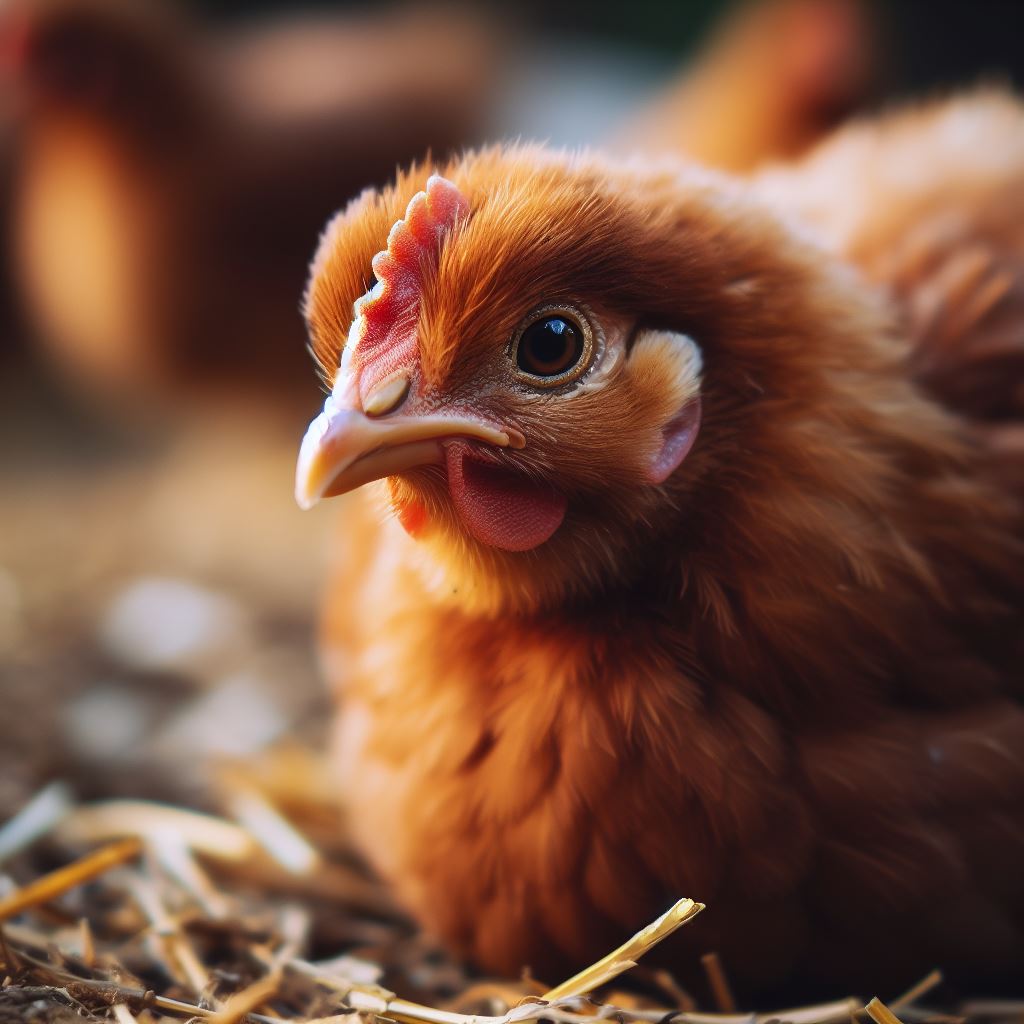Can Chickens Eat Tortilla Chips? Find Out Here!

Table of content:
- Are Tortilla Chips Good or Bad For Chickens?
- Healthy Human Foods Chickens Can Eat
- Unhealthy and Potentially Dangerous Human Foods for Chickens
- Healthy Treats and Snacks for Chickens
- Best Chips and Salty Snacks for Chickens
- Health Risks of Overfeeding Chips to Chickens
- How Often Can Chickens Have Chips?
- Are Nacho and Potato Chips Safe for Chickens?
- Healthier Chicken Treat Alternatives
- Final Thoughts
Chickens are curious creatures who love exploring new foods. As a chicken owner, you may have noticed your hens or roosters pecking at any food scraps they can get access to. This includes human snack foods like tortilla chips. But are tortilla chips safe and healthy for chickens to eat?
Are Tortilla Chips Good or Bad For Chickens?
While chickens can eat small amounts of tortilla chips, these should be considered an occasional treat rather than a regular part of their diet. Here’s an overview of the pros and cons of feeding tortilla chips to chickens:
Pros of Tortilla Chips for Chickens
- Chickens love the taste of salty, crunchy foods like tortilla chips. This makes chips an excellent high-value training treat.
- Tortilla chips provide calories from carbohydrates and fat. In small amounts, they can help add calories to underweight chickens’ diets.
- Eating tortilla chips provides mental enrichment for bored chickens confined to a run or coop. The chips encourage natural pecking behaviors.
Cons of Tortilla Chips for Chickens
- Tortilla chips are highly processed junk food with little real nutrition. They lack the vitamins, minerals, and protein chickens need.
- The salt, fat, and spices in most tortilla chip seasonings are unhealthy in large doses for chickens. Too much can cause digestive upset or obesity.
- Sharp nacho chip edges can potentially cause mouth injuries or choke chickens. Crumbling chips helps reduce this risk.
- Chickens gorging on a bag of tortilla chips may fill up without eating a balanced diet. This could lead to malnutrition.
Healthy Human Foods Chickens Can Eat
While tortilla chips should only be an occasional treat, there are many healthy people foods chickens can enjoy more regularly. Here are some of the top human edibles that are safe and nutritious for chickens:
- Fresh fruits like melons, apples, berries, bananas and even citrus fruits without the peel. Fruits provide natural sugar, vitamins and water.
- Fresh veggies like lettuce, spinach, broccoli, sweet potatoes, pumpkins and corn. Vegetables offer nutrients like vitamin A, C, K, calcium and antioxidants.
- Cooked rice, pasta and whole grain breads are a good source of carbohydrates for energy. Cereal like Cheerios can be fed as an occasional treat.
- Small amounts of lean cooked meat, hard boiled eggs, plain yogurt and mild cheeses offer a protein boost.
- Unsalted natural nut butters, sunflower seeds, oats and pieces of cooked beans provide additional protein, fat and fiber.
Feel free to experiment with offering your flock a wide variety of fruits, vegetables, whole grains and lean proteins. A diverse diet will provide the nutrition chickens need.
Unhealthy and Potentially Dangerous Human Foods for Chickens
While chickens can safely eat a variety of people foods in moderation, some items are very unhealthy or unsafe for chickens. Avoid feeding chickens:
- Salty, greasy or sugary junk foods like chips, cheese, ice cream, or chocolate. These can cause obesity and health issues.
- Raw potato or green potato peels, raw beans or undercooked beans contain toxins.
- Onions, garlic, avocados, chocolate and caffeine are toxic to chickens in any amount.
- Raw meat or eggs, greasy foods, and excess animal fat or oil can cause digestive upsets.
- Spicy seasonings containing capsaicin or black pepper may irritate chickens’ sensitive digestive systems.
Always introduce new foods in moderation to watch for signs of digestive upset or allergic reaction. Only make major diet changes gradually.
Healthy Treats and Snacks for Chickens
To satisfy chickens’ natural foraging and pecking instincts, provide snackable treats they have to work for. Scatter treats in their run or hide inside cardboard tubes or boxes so chickens have to hunt and peck to earn each nibble. Healthy snacking options include:
- Chopped greens like kale, lettuce or brassicas
- Dried mealworms or crickets
- Chopped hard boiled eggs
- Scattering mixed bird seed, oats, wheat bran or sunflower seeds
- Shredded vegetables and fruits
- Whole cooked pasta, rice or mixed grain blends
- Sprouted seeds or beans
- Frozen peas, corn or berries
- Shredded cheese or plain yogurt mixed with seeds or oats
These options provide activity along with nutritional variety. Feeding treats in moderation avoids issues like obesity.
Best Chips and Salty Snacks for Chickens
While chips shouldn’t be a regular item, chickens can enjoy infrequent small portions of low-salt chips in moderation. The safest options include:
- Plain corn tortilla chips or baked corn chips with minimal seasonings
- Low-sodium potato or veggie chips
- Wholegrain crackers or pita chips
- Air-popped popcorn
- Pretzels
- Rice cakes
Crumble chips into smaller pieces to reduce choking risk. Avoid heavily seasoned, spicy or greasy chip varieties. Offer only tiny portions, and watch to ensure treats don’t replace balanced meals.
Health Risks of Overfeeding Chips to Chickens
While an occasional tortilla chip or two won’t harm chickens, overdoing high-fat, high-carb junk food carries risks including:
- Obesity: Too many calories without exercise can quickly lead to obese chickens prone to heart issues and joint pain.
- Nutritional deficiencies: Chips offer very limited nutrients. Chickens focused only on filling up on chips may not get enough protein, vitamins or minerals.
- Digestive problems: Greasy, fried chips or heavily seasoned chips can irritate chickens’ digestive tracts and cause diarrhea.
- Choking hazards: Large chips or sharp nacho chips can potentially obstruct chickens’ throats or injure their mouths or crops.
- Reduced appetite: Chickens filled up on low-nutrient chips may be less interested in eating their balanced feed.
With moderation and common sense, an occasional chip, cracker or popcorn snack is fine. But don’t let these unhealthy treats become dietary staples.
How Often Can Chickens Have Chips?
Chickens should get no more than 1-2 small tortilla chips or miniature cracker-sized chips 2-3 times per week at most. A few tiny pieces are enough to provide a flavor treat without overdoing salt, fat and carbs.
Break larger chips into smaller pieces to reduce choking risk. Never give chickens a whole bag of chips to free feed. Portion treats out carefully to protect chickens’ health.
Are Nacho and Potato Chips Safe for Chickens?
Most flavored nacho chips or greasy fried potato chip varieties aren’t ideal for chickens. However, an occasional baked tortilla chip or plain lightly salted potato chip crushed into small pieces is unlikely to cause harm.
Focus on unseasoned corn tortilla or plain potato varieties to minimize salt and spicy seasoning. Make sure chips given to chickens are fresh and crisp, not stale. Stale chips are extra hard and more likely to cause injuries or crop impactions.
Healthier Chicken Treat Alternatives
If you want to provide an occasional snack for enrichment but avoid unhealthy chips and crackers, here are some healthier alternatives:
- Dried mealworms, crickets or black soldier fly larvae
- Chopped greens
- Sprouted seeds or beans
- Shredded chicken treat blocks
- Scatter feeding whole grains and seeds
- Chopped hard boiled eggs
- Fresh fruits and vegetables
- Plain air-popped popcorn
- Whole grain low-sugar cereal
- Cooked brown rice, quinoa or pasta
- Frozen peas or corn
- Plain yogurt with seeds mixed in
These natural snacks offer more nutritional benefits without excess fat, salt and carbohydrates. Prioritize treats with protein and nutrients over empty junk food calories.
Final Thoughts
Chickens are natural foragers programmed to peck and scavenge. The occasional tortilla chip or two can provide mental enrichment. But chips shouldn’t become a diet staple. Focus on healthier snacks that satisfy chickens’ pecking instincts without risking obesity and malnutrition. Always feed chips in limited quantities, and crumble large chips to prevent choking hazards. With a little common sense, you can safely let your flock enjoy an occasional chip as a special treat.
Welcome. I’m Adreena Shanum, the proud owner of this website, and I am incredibly passionate about animals, especially poultry. I founded adreenapets.com as a labor of love, stemming from my desire to share my knowledge and experiences with poultry enthusiasts worldwide.




